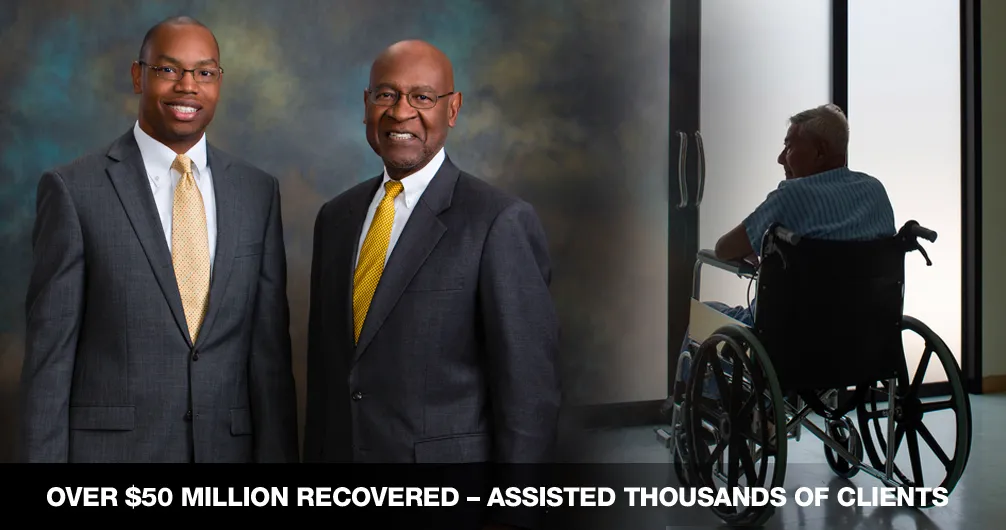Serving All of Georgia, Florida, & Texas
- Home
- Our Team
- Practice Areas
- Locations
- Serving All of Georgia
- Acworth
- Albany
- Alma
- Alpharetta
- Americus
- Athens
- Atlanta
- Augusta
- Austell
- Bainbridge
- Baxley
- Brunswick
- Buford
- Carrollton
- Claxton
- College Park
- Columbus
- Conyers
- Cordele
- Covington
- Dallas
- Dalton
- Decatur
- Douglas
- Douglasville
- Dublin
- Duluth
- Dunwoody
- East Point
- Fairburn
- Fayetteville
- Fitzgerald
- Forest Park
- Fort Valley
- Gainesville
- Georgia
- Greensboro
- Griffin
- Hazlehurst
- Hinesville
- Homerville
- Jesup
- Jonesboro
- Kennesaw
- LaGrange
- Lithia Springs
- Lithonia
- Ludowici
- Macon
- Marietta
- McDonough
- Metter
- Milledgeville
- Millen
- Morrow
- Moultrie
- Newnan
- Peachtree City
- Pembroke
- Perry
- Pooler
- Powder
- Reidsville
- Richmond
- Rincon
- Riverdale
- Rome
- Roswell
- Sandy
- Savannah
- Smyrna
- Soperton
- Sparta
- Soperton
- Statesboro
- Stockbridge
- Stone Mountain
- Swainsboro
- Sylvania
- Thomasville
- Thomson
- Tifton
- Tucker
- Union City
- Valdosta
- Vidalia
- Warner Robins
- Waycross
- Waynesboro
- Serving All of Florida
- Serving All of Texas
- Serving All of Georgia
- Free Case Review
- Results
- FAQs
- Contact
call us 24/7 1-800-738-WE-WIN
- Home
- Our Team
- Practice Areas
- Locations
- Serving All of Georgia
- Acworth
- Albany
- Alma
- Alpharetta
- Americus
- Athens
- Atlanta
- Augusta
- Austell
- Bainbridge
- Baxley
- Brunswick
- Buford
- Carrollton
- Claxton
- College Park
- Columbus
- Conyers
- Cordele
- Covington
- Dallas
- Dalton
- Decatur
- Douglas
- Douglasville
- Dublin
- Duluth
- Dunwoody
- East Point
- Fairburn
- Fayetteville
- Fitzgerald
- Forest Park
- Fort Valley
- Gainesville
- Georgia
- Greensboro
- Griffin
- Hazlehurst
- Hinesville
- Homerville
- Jesup
- Jonesboro
- Kennesaw
- LaGrange
- Lithia Springs
- Lithonia
- Ludowici
- Macon
- Marietta
- McDonough
- Metter
- Milledgeville
- Millen
- Morrow
- Moultrie
- Newnan
- Peachtree City
- Pembroke
- Perry
- Pooler
- Powder
- Reidsville
- Richmond
- Rincon
- Riverdale
- Rome
- Roswell
- Sandy
- Savannah
- Smyrna
- Soperton
- Sparta
- Soperton
- Statesboro
- Stockbridge
- Stone Mountain
- Swainsboro
- Sylvania
- Thomasville
- Thomson
- Tifton
- Tucker
- Union City
- Valdosta
- Vidalia
- Warner Robins
- Waycross
- Waynesboro
- Serving All of Florida
- Serving All of Texas
- Serving All of Georgia
- Free Case Review
- Results
- FAQs
- Contact
Atlanta Nursing Home Abuse Lawyer
Atlanta Nursing Home Abuse & Neglect Attorney

Most people cannot imagine the thought of attempting to hurt someone in a nursing home. This does not mean everyone understands what most of us believe that residents in nursing homes are there to receive treatment they need in a peaceful safe environment.
Nursing home abuse is real. According to the American Association of Justice, 1.4 million people live in U.S. nursing homes. And only 1 in 14 incidents of abuse is reported.
The following are the common signs of nursing home abuse:
- Bruises or bleeding
- Emotional withdrawal
- Bedsores
- Silence around caretakers
- Bruises on or around an elder’s genitals
- Unexplained illness or infection
- Change in elder’s will
- Change in power of attorney
If you believe your loved has been injured physically or from neglect call our experienced nursing abuse attorneys at Merritt & Merritt today. Our attorneys are ready to assist you. We understand each nursing abuse case is unique and requires personalized attention, thats why our attorneys will consult with you to address the legal issues so your loved one can receive the care and compensation they deserve.
If you have further questions or need to discuss a potential claim, contact us at 404-975-1775 or via our free case review form.
Practice Areas
Testimonials
I was hit from behind on the interstate and there wasn’t much damage to my car. I hit my head pretty hard on the steering wheel and had severe back pain. The attorney made sure…
Nikki T
The staff is very helpful, professional, and down to Earth. It was so easy communicating with them. They kept me updated on each step, and got my cases settled in a timely manner! I would…
Queen Jay
From the moment I contacted their office, I was met with a friendly and professional team. The attorneys at Merritt and Merritt Law Firm demonstrated a great level of expertise and knowledge in handling my…
Jenée Brown
They have a great staff. Everyone was very friendly and professional. They handled my claim and were exceptionally helpful along the way. They made sure I understood every option and kept me updated throughout the…
Amber Wilkerson
My internship at Merritt & Merritt Law Firm in 2021 was an exceptional experience, primarily due to Attorney Merritt's outstanding guidance and expertise. Attorney Merritt's deep knowledge of the law and dedication to client success…
Maya Raheem
I cannot express enough gratitude and satisfaction for the outstanding legal services provided by my attorney in handling my recent automobile claim. From start to finish, their expertise, dedication, and professionalism exceeded all expectations. Attorney…
Marcia Brown
My Experience with Merritt and Merritt Law Firm was excellent! Expectations were exceeded, the knowledge provided was very informative, and the communication was great!
Mackenzie Clark
Welcoming Staff! Hard working Lawyer! Case managers stay in touch and on top of your case. The paralegal is making sure all the paper work is in order and ready to be submitted. Smooth operation.…
Jennifer Stephens
Just what I needed....I was new to the area. Someone rear ended me, I couldn't even get a doctor to take my call...But heaven sent this firm. THANK YOUUUUU
Tisha
5 star service from a family law firm that cares about their clients. Their professionalism was top tier and greatly appreciated. I trust Merritt & Merritt!!!!
Samose%%54fu4rr7 Mays
My experience with them was amazing. They handled my case so well and went above and beyond what I expected. This was my first time in this situation and they made it so easy!
Ronnekia Daughtry
It has been a pleasure working with a group of professional. The staff were kind and kept me updated throughout the whole process. I'm really appreciate of what they done for me. Thanks always Karl…
Karl Williams
They work along with you to make sure that you are compensated. The staff maintained good communication and were great to work with.
Renada McCord
Merritt&Merritt is AWESOME! The night I was in a accident in September 2021,they called and wanted to take my case.. My case worker was R. Myers, and Minkah Merritt was my attorney.. They worked so…
Tamara Howard
Merritt & Merritt did a great job for my case. Being this my first ever car accent while being a full time college student and working a full time job is already harder enough; having…
Brandon Dean
Treated me like faimly made sure i had what i needed when i needed a great group of people
Ricky Barber
This was one of the most comfortable, supportive, understanding, and professional company I have ever encountered. I would recommend them to anyone at a moments notice. I pray nothing but continued success and prosperity upon…
Pastor Tee Pinkney
I highly recommend using this law firm. They were able to handle me and my son's case with a level of care that catered to our needs. We are thrilled to have done business with…
Aiysha Copeland
It has been a great experience. Everyone I spoke with at the firm has been very professional and polite. Thanks so much for your service.
Marcella Johnson
Mr. Merritt and his staff were a saving grace when a drunk driver hit me from the rear. They were very patient and compassionate to what my family and I were going through. They were…
Lakeidra Jackson
Absolutely amazing law firm to work with. Extremely professional, and timely. Helped me get the most out of my divorce and settlement claim.
Michael Roth
It was a lengthy process, but Minkah Merritt definitely reassured me as well as his office staff that they were handling my case and they certainly did I will be a loyal client going further.…
Harry Green
Merritt was helpful from day one. I never had to chase or harass them for help or updates. Thanks a million!
Kimberly McCall
I was pleased with the professionalism and my settlement.. You guys are awesome. I absolutely love Shea & Debra they both were so patient with me… Minkah (sp) thanks a bunch
Chakettia Lazenby
I can honestly say when I was trying to find an attorney, it is one of the scariest times in my life. Your freedom, finances, and even your life may depend on the attorney and…
Heather Roark
I really enjoyed y’all helping me… everyone was very friendly, polite, nice, respectful. And they help me with my case without any frustration or problems.
Deshawn Sharpe
Very professional and great communication! Always kept me in the loop with same day response. Would definitely use them again and highly recommend! Thank you!
LaTiffiny Barrow
It was a long process but they were there for me and with me every step of the way. They got the job done. It was a pleasure doing business with them, it felt like…
Felicia Williams
I highly recommend Merritt & Merritt. They are very kind and understanding, they take their time to answer any questions or concerns you may have. They make sure the job is done right and they…
Courtney Wilkerson
The firm was patient with me and the whole situation no issues. I would use them again if need be and I recommend them for other to use them as well.
Everett Parrish
Very happy with the outcome of my case. Would recommend this law firm. Did a great job.
Denise Stanley
I highly recommend Merritt and Merritt. They are very proactive and was very thorough with my car accident case. I requested a consultation and received a phone call from the attorney on Sunday and he…
Dannie Butler
After my wreck I was a hot mess. My anxiety shot through the roof especially due to my special case. Merritt and Merritt took care of all my needs and fears. ALL staff was nothing…
Lindsey Johnson
I've used them twice. Nothing but good to say. Small yet mighty business. Would recommend to anyone in need.
Ora Kilpatrick
My father is a friend of Merritt and my sister knows his son. I was lucky enough to be able to work with the father. I suffered a herniated disc at my workplace last year,…
MB C
The office is very beautiful. I was pleasantly welcomed by the administrator. I was helped immediately. The service was warm and efficient. I am happy I chose Merritt and Merritt to represent me!
Tamika Mitchell
They helped me with a car accident settlement and made sure to keep me updated on what was going on with my case. It took a bit more time than I expected, but I would…
Melody Merrell
Very professional. They are great at keeping in touch with you for all your needs and are very polite and easy to work with.
Jaedon Eaddy
Merritt and Merritt was very understanding when my family was in accident. Help us out alot. They are very knowledgeable and understanding to their clients. I will refere there service to anyone who has been…
Alicia Gordon
Very nice and fast! The got me my payout when no one else could. Best attorney
Desiree Gadson
Thanks to Merritt and Merritt for helping me with my case!!!! I highly recommend them to anyone who needs help or assistance with an car accident!! The staff is very friendly and keeps you updated…
Janadria Wiggins
My experience was great! I would recommend Merritt & Merritt to anyone who needs their services. Thank you !
Nekia Daughtry
Great company, they will stay in contact with you every step of the way. Makayla is nice and understanding
G.M View
Merritt and Merritt helped me rather quickly after my accident and they’re affordable
Reyna Kaye
My first time ever having to get a lawyer. Some of the best people you could ever meet. I was a little concerned at first but I'm glad I chose them. Great members of the…
Shanpatrick sapp
I definitely appreciate the help from Merritt and Merritt law firm. The staff is very help and understanding. I will always choose them first.
Kamesha Johnson
When I called they responded and it was not just about business they were concerned about my daughter especially since she was an student athlete. I am forever grateful. We choose them first.
Latunya Rock
“They have a very professional and personal atmosphere. Great law firm that makes people their priority.”
Christopher P.
“Merritt & Merritt Law firm are some great people and professionals…They are active in the community and don’t mind helping the less fortunate. Thank you guys for all you do and what’s yet to come.
Christopher H.
“Top-notch lawyers. Highly respected in the legal community.”
Christian L.
Without Merritt & Merritt Law Firm I don't know what we would have done. I give Merritt & Merritt 5 stars. Thanks for everything.
E.Hagins
A special thank you to Mr. Merritt, and the whole team for treating me right and keeping me notified on everything that was going on with the case. I would love to work with you…
Bryant F
I would like to thank the Merritt and Merritt Law Firm for doing an outstanding job! We dealt with a lot of attorneys in Atlanta and none were able to get the job done. Merritt…
T. Hill
Request A Free Consultation
” * ” Indicates Required Fields
Our Locations

Statesboro
15 West Main Street
Statesboro, GA 30458

Savannah
100 Bull Street
Suite 200
Savannah, GA 31401

Atlanta/Decatur
1 West Court Square
Suite 750
Decatur, GA 30030

Jacksonville
841 Prudential Drive
12th Floor
Jacksonville, FL 32207
Contact Us
© Copyright 2024 Merritt & Merritt Law Firm. All rights reserved.

